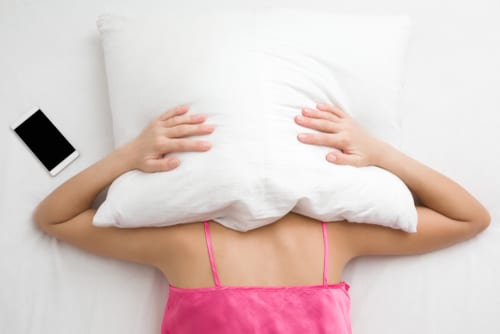I thought I would take a moment to talk about something that we are all lacking this holiday season and perhaps in our normal lives…good sleep habits! Sleep is a vital need for humans, it is essential to our bodies function and well being, and yet we struggle with this most important need.
To understand how we can better our sleep habits, I thought we should talk a little bit about the science of sleep. Sleep is measured by the Sleep Cycle which is made up of four individual stages. Our sleep is not uniform. On average a person goes through 4-6 rounds of sleep cycles a night. The length of each sleep cycle varies during the night but lasts about 90 minutes on average. Sleep cycles can be affected by many factors including age, stress, alcohol consumption, etc. http://www.sleepfoundation.org/how-sleep-works/stages-of-sleep

The 4 Stages of Sleep Cycles
Each sleep cycle is broken down into four stages. The first stage of sleep is a non REM stage. This is when a person is falling asleep so it lasts an average of 1-5 minutes. During this time a persons’ body is relaxing and brain activity is slowing.
Stage 2 sleep is when the body is further relaxing, the muscles relax, body temperature drops, a person enters a more resistant state to waking up. This stage lasts an average of 10-25 minutes.
The third stage of sleep is the last non REM stage. It is when the body enters a deep sleep, further relaxing with decreased muscle tone, respiratory and pulse rate. During this stage it is more difficult to wake someone. This stage of deep sleep is thought to be restorative for the body with evidence that it improves the immune system, thinking and creativity.
REM sleep is the fourth stage of sleep, also known as the dream stage. During this time the brains’s activity increases. This is known to be important for cognitive function and creativity.
The four sleep stages, 3 non REM and 1 REM stage are important as they allow for restorative sleep. There is evidence that the different stages help with learning, creativity and memory consolidation, including the formation of procedural memory, the ability to recall a task as well as declarative memory.
Now that we know a little more about the stages of sleep and their importance, we can talk a little about sleep in today’s world. At this time we are being faced with many sleep challenges. The advent of COVID has resulted in many people out of work or working from home. This has altered daily schedules due to fewer time constraints for working, eating, exercise and other routines contributing to more poor sleep habits and sleep dysfunction.
What are the consequences of sleep disturbances and sleep deprivation? Many studies show that sleep deprivation and inadequate sleep can lead to mood disturbances, altered exercise performance, poor cognition and memory. Chronic sleep deprivation increases the risk for heart disease, obesity, stroke and infection as well as other health issues.
So how do we get a good night’s sleep? What does a good night’s sleep consist of?
Establish Good Sleep Habits.
- Sleep should be a priority, a person should reserve 7-8 hours a night for sleep time.
- Maintain as much as possible a regular wake, work, exercise eating and other activities to train a persons’ biological clock.
- Get as much daylight exposure as possible to maintain and regulate circadian rhythms https://charmaustin.com/3-ways-to-fight-seasonal-affective-disorder/
- Turn off all electronic devices and computers one hour before bedtime.
- Allow one hour of unwind time to relax before sleep every night.
- Avoid alcohol and caffeine consumption in the evening before bedtime.
- Exercise 20-30 minutes a day https://charmaustin.com/new-exercise-guidelines-d41/
- Create a good sleep environment with comfortable temperature in a quiet, dark room

If you are having serious issues with your sleep habits, there are medications that can be prescribed to help with insomnia short term. However, they can be habit forming and have reduced effect over the long term. Cognitive Behavioral Therapy can be helpful in treating insomnia as well.

Michelle Hall
PA-CPhysician Assistant



